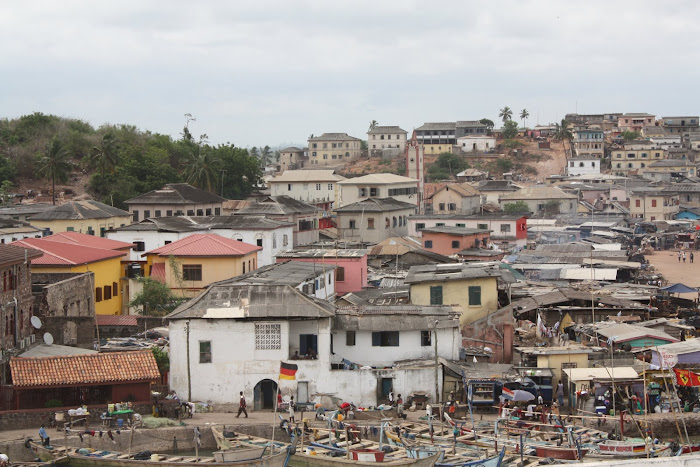
•The class will begin with the reading of a BBC article written by Will Ross on the impact of slavery on Africa, (See Link Titled: )
•Slide #10 of “Slavetrade, afst” will be used to emphasize the measureable effects of the slave trade on Ghanaian society (i.e. emergence of slave kingdoms, shifting trade patterns, social prejudice, cross-cultural exchange, etc.) as suggested by Will Ross in his article. Particular attention should be given to the following quotation by historian Dr. Akosua Adoma Perbi of Ghana’s Legon University:
“The greater demand for slaves for the external market resulted in an increased tapping of the indigineous sources of slave supply…Incessant wars of conquest, expansion, aggression and retaliation became a feature of the Ghanaian experience.”
•In order to further illustrate the role that some African societies played in fueling the Trans-Atlantic Slave Trade, the teacher will lead students through a powerpoint presentation and discussion of the evolution of the Asante culture in what is today present-day Ghana. (See slides entitled: “The Asante: A Kingdom of Slave Traders”) This should be followed up with the notion that the Asante are today the largest ethnic group in all of Ghana, and one of the last to be conquered by colonial England.
•As a class, students will watch a short video excerpt from Henry Louis Gates’ documentary, Wonders of the African World. The video clip, entitled “Poku on Ashanti [Asante] Role in Slave Trade” is based on an interview with the son of an Asantehene on the role of the Asante in the slave trade (See Link Titled: Wonders of the African World)
Homework: Relying on class discussions and supplemental materials, students will be asked to NY Times article “Ghana’s Uneasy Embrace of Slavery’s Diaspora” and Boston Globe article “Shackled to the Past” (See Links). Using these articles, the video clip and class discussion as their data sources, students will write a reflective/analytical essay in response to this quotation by Dr. Henry Louis Gates, Jr.:
“Slavery, we know, has left a hole in the hearts of African Americans. But it has also had the most devastating effects on the African societies left behind. Does legacy haunt Africa today? For even while guilt itself is not heritable, could it be that the consequences of that guilt somehow persist?"
